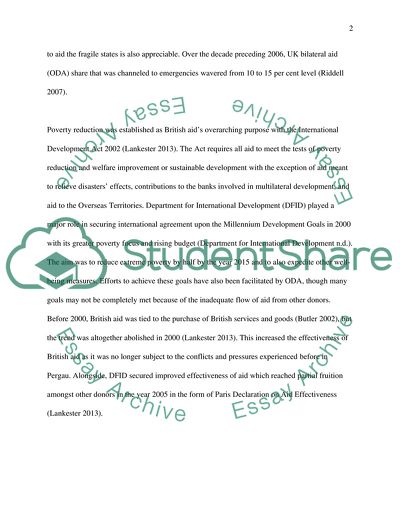Cite this document
(Has British Aid Policy over the Past 20 Years Been Effective Case Study Example | Topics and Well Written Essays - 1250 words - 1, n.d.)
Has British Aid Policy over the Past 20 Years Been Effective Case Study Example | Topics and Well Written Essays - 1250 words - 1. https://studentshare.org/politics/1869502-has-british-aid-policy-over-the-past-20-years-been-effective
Has British Aid Policy over the Past 20 Years Been Effective Case Study Example | Topics and Well Written Essays - 1250 words - 1. https://studentshare.org/politics/1869502-has-british-aid-policy-over-the-past-20-years-been-effective
(Has British Aid Policy over the Past 20 Years Been Effective Case Study Example | Topics and Well Written Essays - 1250 Words - 1)
Has British Aid Policy over the Past 20 Years Been Effective Case Study Example | Topics and Well Written Essays - 1250 Words - 1. https://studentshare.org/politics/1869502-has-british-aid-policy-over-the-past-20-years-been-effective.
Has British Aid Policy over the Past 20 Years Been Effective Case Study Example | Topics and Well Written Essays - 1250 Words - 1. https://studentshare.org/politics/1869502-has-british-aid-policy-over-the-past-20-years-been-effective.
“Has British Aid Policy over the Past 20 Years Been Effective Case Study Example | Topics and Well Written Essays - 1250 Words - 1”. https://studentshare.org/politics/1869502-has-british-aid-policy-over-the-past-20-years-been-effective.


